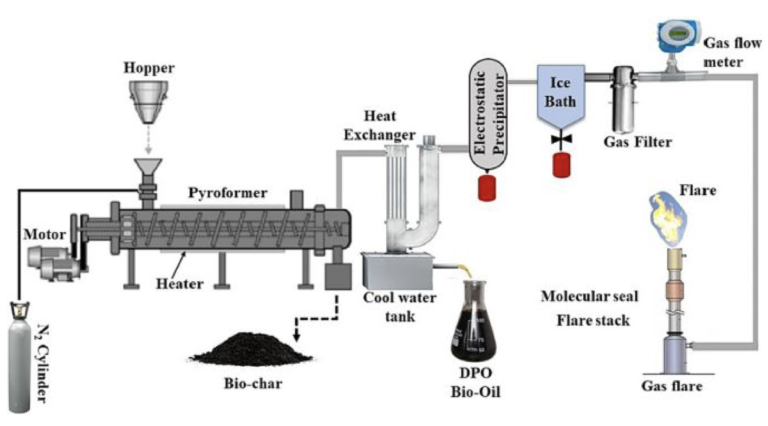Aston University in Birmingham, UK, has created a cleaner fuel for ships by blending leftover cooking oil, lamb fat and agricultural waste.
Currently most vessels run on an oil refinery waste product called bunker fuel, but this presents several environmental concerns including the risk of oil spill and the emission of toxic compounds and particulates. In 2020 the UN banned the use of heavy fuel oil in the Arctic, following its ban in Antarctic waters in 2011.
Now scientists at Aston University have combined waste material supplied by a Dutch anaerobic digestion plant with used oil or fat to create a blend that could be a replacement for bunker oil. Their research paper Investigation of anaerobic digested pyrolysis oil and waste derived biodiesel blends as sustainable fuel for marine engine application has been published in the journal Fuel.
The waste pellets were treated in the university’s pyrolysis-based reactor, which heated them to 500°C to convert them into bio-oil. Solvents were added to the bio-oil, which was then blended with the used cooking oil or fat to create the fuel.
Dr Abul Kalam Hossain, senior lecturer in the department of mechanical, biomedical and design engineering, said, “Over the past 10 years both the volume of marine transport and the corresponding greenhouse gas emissions have increased steadily.
“We knew of the potential of pyrolysis oils as renewable biofuels for use at sea in diesel engines. However, due to their low energy content, high acidity and viscosity we knew they needed to be improved.”
The researchers created five blends, adding differing amounts of bio-oil, solvent and oil or fat, and stored them in the dark for eight months.
Tests showed the blends had improved their heat value, viscosity and density by 25-40% and complied with marine fuel standards (ISO 8216 and ISO 8217) for use in diesel engines and boilers.
The paper states that the oil blends can be used in stationary diesel engines as well as marine diesel engines for power generation.
The research illustrates how biomass pyrolysis technology has developed into a sustainable technique that can turn food and agricultural waste into bio-oil. The study’s results could eventually contribute to better global air quality.
The Aston University research team worked alongside academics at the School of Architecture, Technology and Engineering at the University of Brighton in the UK; the Indian Institute of Technology in Madras, India; and the College of Engineering Guindy at Anna University in Chennai, India.
For more news on alternative fuels, please click here.



